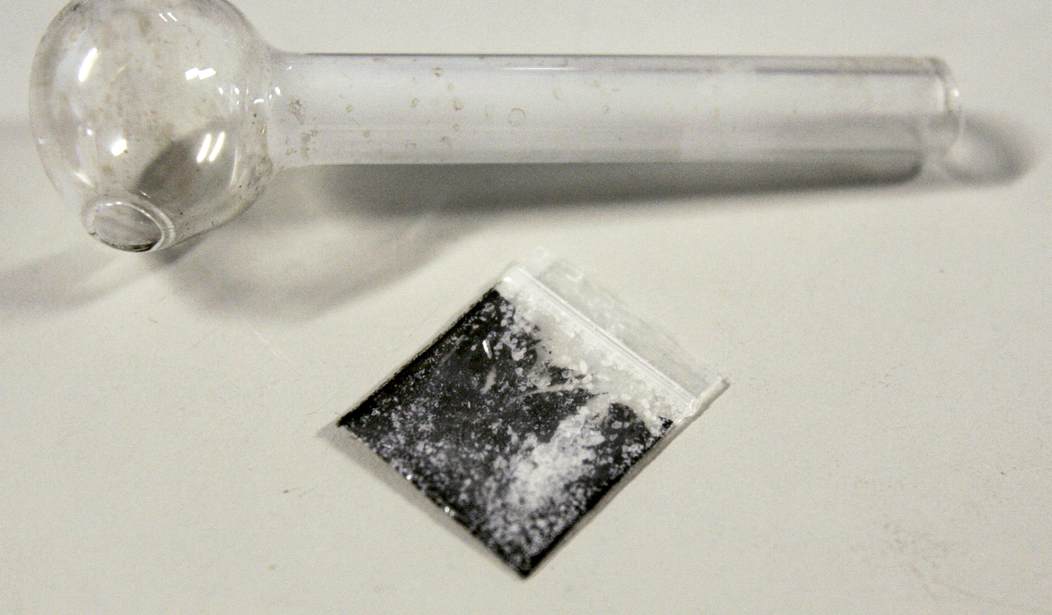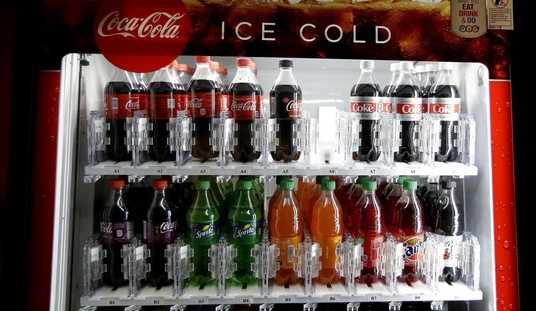The opinions expressed by contributors are their own and do not necessarily represent the views of RedState.com.
In their zeal for ginormous spending bills, Republicans and Democrats in Congress failed to address an issue that should have been rectified ages ago: cocaine sentencing disparities.
Earlier this month, lawmakers from both parties indicated that they would finally develop a measure that would deal with the reality that despite being nearly chemically identical, crack cocaine sentencing is far harsher than the penalty for possessing powder cocaine.
Earlier in December, Reuters reported that Republican and Democrat senators had reached a “tentative deal to narrow sentencing disparities between crack and powder cocaine” and planned to insert it into the omnibus spending bill that is now making its way through the legislature. This measure was designed to remedy one of the many issues with the Anti-Drug Abuse Act of 1986, which was authored by then-Senator Joe Biden. The sentencing policy treated crack cocaine as if it were 100 times more pernicious than powder cocaine, which is scientifically untrue.
Under the legislation, one arrested for possessing five grams of crack with intent to distribute carried the same five-year mandatory minimum sentence as 500 grams of powder cocaine. It also mandated a 10-year minimum for five kilograms of powder cocaine and only 50 grams of crack.
The issue with this disparity is that there is no viable reason why both of these forms of cocaine should be treated differently by our justice system. Crack cocaine is basically the same as the powdered variety, but in a different form. The Oxford Treatment Center explains:
The two substances are basically chemically identical except that crack cocaine has the hydrochloride salt removed; hydrochloride salt has no psychoactive effects. Thus, crack cocaine is a bit more concentrated.
The name crack comes from the crackling sound that the substance makes when individuals smoke it in a pipe or cigarette. Smoking the drug is a far more efficient means of getting the drug into one’s system, and the individual experiences the results in a much more intense fashion, but its effects are short-lived.
The organization goes on to note that “the differences between crack cocaine and powder cocaine are minor.”
Critics of the measure have long pointed out that the sentencing disparities were unfair, and even racist. Those using or selling crack cocaine were far more likely to be black while those possessing powder cocaine were more likely to be white. This led to black Americans receiving much harsher punishment for essentially possessing or selling the same drug as white offenders.
After the impact of Biden’s drug law manifested, the black legislators who backed the legislation had a change of heart on the matter. But it was too late.
Reuters noted:
Mandatory minimum sentences for crack-related offenses are currently 18 times lengthier than those for powder cocaine, which has led to the disproportionate incarceration of Black Americans since the policy was adopted almost four decades ago.
Under a deal reached by bipartisan negotiators, that proportion would be narrowed to 2.5 to 1, said the people, who requested anonymity to discuss private talks. Congress is likely to attach the measure to a year-end spending bill that lawmakers are currently hashing out, they added.
However, last weekend, it became apparent that Congress would not make the effort to rectify the problems caused by the 1986 drug bill. On Friday, Attorney General Merrick Garland issued instructions to federal prosecutors to alter the way they charge for offenses related to crack and powder cocaine in an attempt to end the disparities.
Senate Minority Leader Mitch McConnell (R-KY) and other Republicans balked, criticizing the move for usurping the power of Congress. “A bipartisan group of lawmakers, including myself, just recently came to an agreement on statutory changes that could possibly be included in the year-end funding bill,” said Sen. Chuck Grassley (IA) in a written statement. “That hard-won compromise has been jeopardized because the attorney general inappropriately took lawmaking into his own hands.”
Because of this disagreement, the measure was not included in the omnibus bill, which is a skull-hammeringly stupid reason to scrap the initiative. It comes off like McConnell and company were only looking for an excuse to maintain the sentencing disparities, and Garland just served one up on a silver platter.
This story is yet another stark reminder that our government does not care about justice, nor does it take seriously the reality that far too many people are being imprisoned over what substances they choose to put into their bodies. From where I sit, the state should not have the authority to place someone behind bars because of a drug just like they shouldn’t be allowed to force someone to take a vaccine – it is a flagrant violation of one’s liberty.
But if they are going to enact this type of tyranny, the fact that they aren’t even concerned with making it “fair” is even more troubling. Unfortunately, since neither party seems to want to make our system more just, these disparities might persist.














